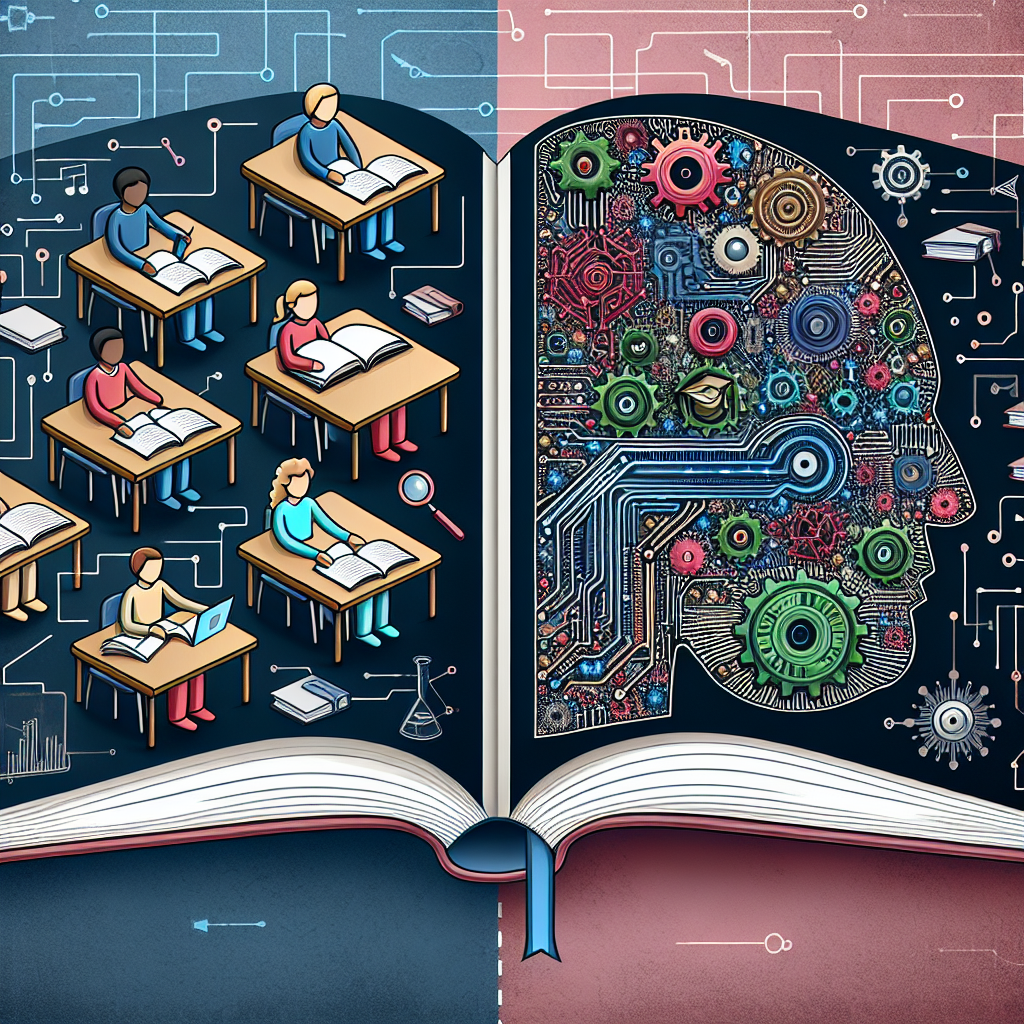In recent years, the rise of artificial intelligence (AI) has had a significant impact on various industries, including education. One area where AI is making a particularly big impact is in student assessment and grading. Traditionally, assessments and grading have been done manually by teachers, which can be time-consuming and subjective. AI technology has the potential to revolutionize this process by providing more efficient, accurate, and unbiased assessments.
AI in Student Assessment
AI technology can be used in various ways to improve student assessment. One of the most common applications is in the grading of multiple-choice and short-answer questions. AI algorithms can be trained to recognize patterns in student responses and provide instant feedback on their performance. This can help teachers identify areas where students are struggling and tailor their instruction accordingly.
Another way AI can be used in student assessment is through the analysis of student writing. AI-powered tools can analyze essays and other written assignments to provide feedback on grammar, spelling, and overall coherence. This can help students improve their writing skills and can also save teachers time by automating the grading process.
AI can also be used to monitor student progress over time. By analyzing data from assessments and other sources, AI algorithms can identify trends in student performance and provide insights into areas where additional support may be needed. This can help teachers intervene early to prevent students from falling behind.
Benefits of AI in Student Assessment
There are several benefits to using AI technology in student assessment. One of the main advantages is the efficiency it provides. AI-powered tools can grade assessments much faster than humans, allowing teachers to spend more time on other aspects of their work. This can help reduce teacher burnout and improve overall productivity.
AI technology can also help improve the accuracy and consistency of assessments. By removing human bias from the grading process, AI can provide more objective feedback to students. This can help ensure that all students are evaluated fairly and receive the support they need to succeed.
In addition, AI can help personalize the learning experience for students. By analyzing data on student performance, AI algorithms can identify individual strengths and weaknesses and provide targeted feedback and support. This can help students learn at their own pace and in a way that is tailored to their needs.
Challenges of AI in Student Assessment
While AI technology has the potential to revolutionize student assessment, there are also challenges to consider. One of the main concerns is the potential for bias in AI algorithms. Like any technology, AI is only as good as the data it is trained on. If the data used to train AI algorithms is biased or incomplete, it can lead to inaccurate assessments and unfair outcomes for students.
Another challenge is the need for ongoing training and support for teachers. While AI technology can automate many aspects of student assessment, teachers still play a crucial role in interpreting and acting on the data provided by AI algorithms. It is important for teachers to receive training on how to use AI tools effectively and to be given the support they need to integrate AI into their teaching practice.
Finally, there are concerns about the privacy and security of student data. As AI technology becomes more prevalent in education, it is important to ensure that student data is protected and used in a responsible manner. Schools and education providers must take steps to safeguard student data and comply with regulations such as the Family Educational Rights and Privacy Act (FERPA).
FAQs
Q: Will AI replace teachers in the grading process?
A: While AI technology can automate many aspects of student assessment, it is unlikely to replace teachers entirely. Teachers play a crucial role in interpreting and acting on the data provided by AI algorithms and providing personalized support to students.
Q: How can AI help improve student learning outcomes?
A: AI technology can help improve student learning outcomes by providing more efficient, accurate, and personalized assessments. By analyzing data on student performance, AI algorithms can identify individual strengths and weaknesses and provide targeted feedback and support.
Q: What are some examples of AI-powered tools that can be used in student assessment?
A: There are several examples of AI-powered tools that can be used in student assessment, including automated grading systems for multiple-choice and short-answer questions, writing analysis tools for essays and other written assignments, and data analytics platforms for monitoring student progress over time.
Q: What are some best practices for using AI in student assessment?
A: Some best practices for using AI in student assessment include ensuring that AI algorithms are trained on unbiased and representative data, providing ongoing training and support for teachers, and safeguarding student data to protect privacy and security.
In conclusion, the impact of AI on student assessment and grading is significant and has the potential to revolutionize the way students are evaluated in the future. By leveraging AI technology, educators can provide more efficient, accurate, and personalized assessments that can help improve student learning outcomes. While there are challenges to consider, such as bias in AI algorithms and the need for ongoing training for teachers, the benefits of using AI in student assessment are clear. As AI technology continues to evolve, it will be important for educators to embrace these advancements and harness the power of AI to support student success.

